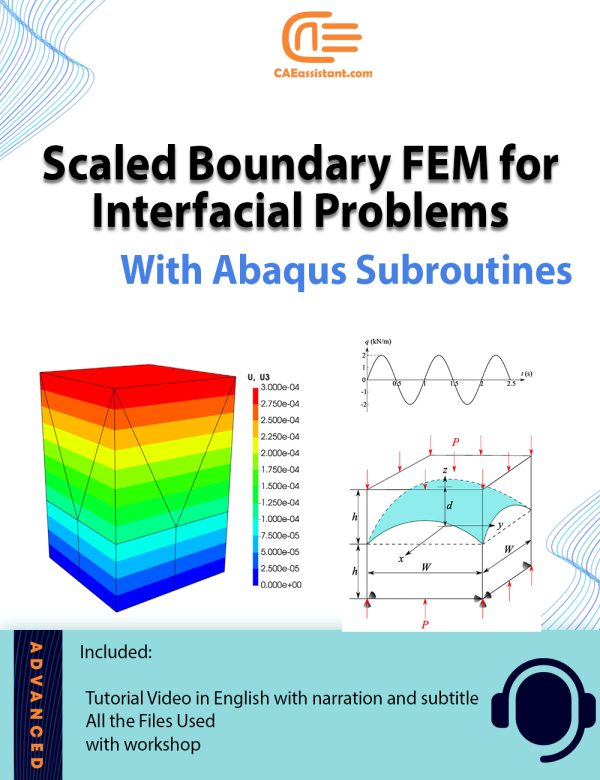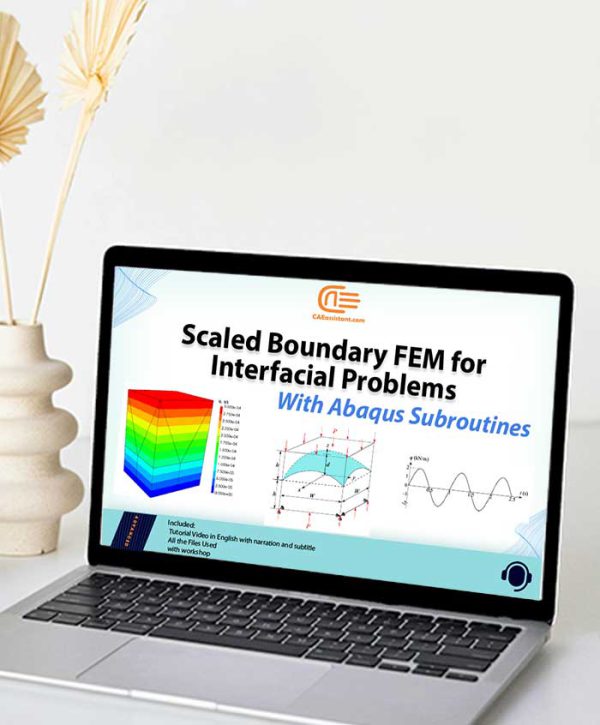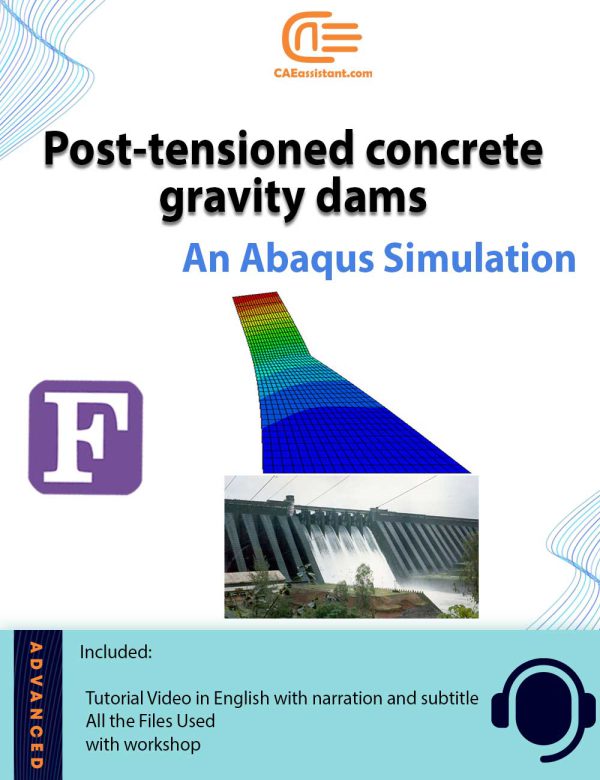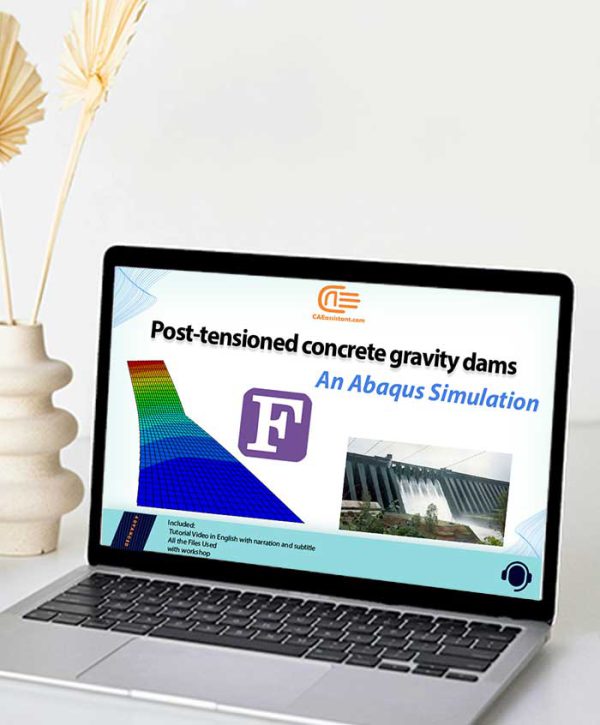Scaled Boundary Finite Element Method (SBFEM) Modeling Files for ABAQUS
The Scaled Boundary Finite Element Method (SBFEM) enhances traditional Finite Element Analysis (FEA). It provides flexibility in handling complex geometries and interfaces. Integrated into ABAQUS, SBFEM allows for the creation of polyhedral elements, reducing meshing challenges. It effectively manages non-matching meshes and complex boundary conditions, particularly in interfacial problems like contact mechanics and fracture analysis. ABAQUS supports custom user elements (UEL), enabling direct integration of SBFEM with advanced solvers, improving efficiency and expanding its applicability to complex engineering problems. The open-source implementation allows for customization, making SBFEM in ABAQUS a powerful tool for precise and efficient simulations. This is particularly beneficial in scenarios requiring advanced FEA.
Seismic Analysis in Post-Tensioned Concrete Gravity Dam Design Using Abaqus Subroutines




